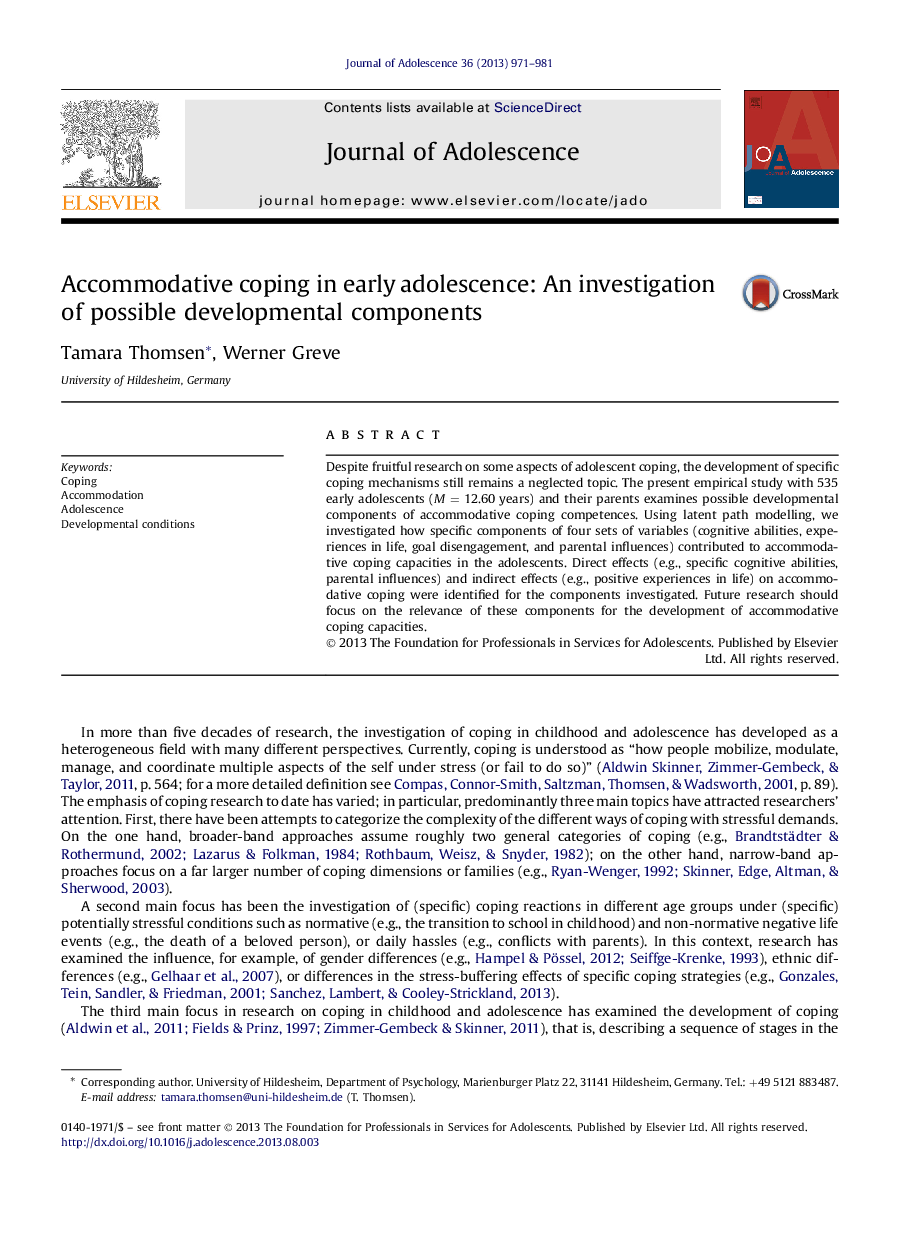| Article ID | Journal | Published Year | Pages | File Type |
|---|---|---|---|---|
| 880929 | Journal of Adolescence | 2013 | 11 Pages |
Despite fruitful research on some aspects of adolescent coping, the development of specific coping mechanisms still remains a neglected topic. The present empirical study with 535 early adolescents (M = 12.60 years) and their parents examines possible developmental components of accommodative coping competences. Using latent path modelling, we investigated how specific components of four sets of variables (cognitive abilities, experiences in life, goal disengagement, and parental influences) contributed to accommodative coping capacities in the adolescents. Direct effects (e.g., specific cognitive abilities, parental influences) and indirect effects (e.g., positive experiences in life) on accommodative coping were identified for the components investigated. Future research should focus on the relevance of these components for the development of accommodative coping capacities.
